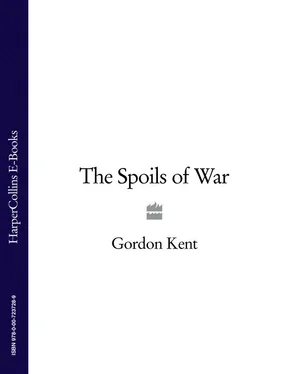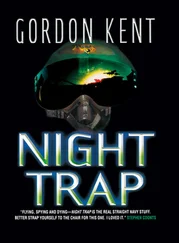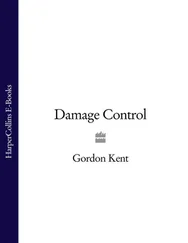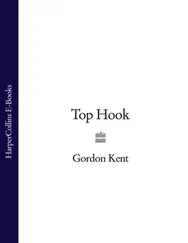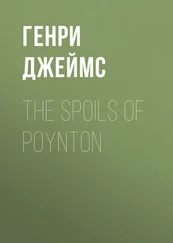1 ...7 8 9 11 12 13 ...23 “Yes,” he said.
“How well do you know Salem Qatib?” Colonel Hamal asked.
Rashid squirmed. “We are friends.”
Hamal rustled his papers and glanced at his watch.
“He—he played with my oldest brother—when they were boys,” Rashid said.
Hamal didn’t look up from the dossier in front of him.
“Then—then he went away to—America,” Rashid said. “When he—Salem—came back, he came to visit my mother.”
The woman nodded her understanding.
Rashid went on, “He wanted to offer my brother a job, but Ali—was dead. So he took me instead.”
“Tell me about that job.” The woman leaned forward, and her scent covered the smell of mold and made the room a better place. It was not a smell of sex, but of flowers.
“We dug. For old things, antiquities.” Rashid knew he was committed now, had said too much, but their expressions didn’t change and he had nothing to lose. They were interested in Salem. So was he. “Salem would identify a site, and we would dig by hand. If there were things, then other men would come, but we would do the fine work.” Rashid tried to express the fine work by brushing the table with his fingers. “With a toothbrush? You know? And sifting. The other men would never sift, they wanted to use a backhoe for everything.”
“And Hamas told you to take the job.” Hamal was leaning forward too, his cigarette smoke cutting through the woman’s perfume. She waved at the smoke, but her eyes stayed with Rashid.
Rashid wrapped himself in his arms again and sat quietly. Because it was true, and because it was a betrayal of Salem before he even knew Salem.
“You had to, yes? Your mother would have asked you to do this work for them.” Zahirah sounded concerned. Perhaps she, too, despite her modern clothes, was a mother.
“They took care of us when my father died.”
“Of course. And you—what? You reported to them on what Salem found?”
Rashid put his face in his hands. He sobbed, “Not after we were friends! I—” he gulped air, swallowed the word loved. “We were friends.”
She nodded. Hamal leaned across her. “You were at the dig at Tel-Sharm-Heir’at?”
Rashid nodded. He could see the dig, the pit facing the sea, and everything covered with blue tarps against the winter rain. The row of burial urns that started them on the site. The stone structure nearest the sea that had electrified Salem.
“You were there when Qatib was beaten?” Hamal asked.
“I—ran.” The beach full of men. Salem kneeling, hit with a shovel. The bearded man he hit with a hammer.
Zahirah nodded. Hamal made a mark in the manila folder.
“Salem Qatib is an archaeologist, yes?” Hamal asked.
Rashid was still on the beach in his mind. His hands were shaking again, but his voice was steady. “He went to school in America.”
“He entered the Masters program in Archaeology and Ancient Studies at the University of Michigan,” Hamal said. “Which means that he is, in fact, an archaeologist. I would like to hear you confirm that, Rashid.”
“Yes, he is an archaeologist.”
“He is conducting an illegal dig.”
“Are there legal digs here?” Rashid surprised himself. But he wasn’t as afraid as he had been.
The woman, Zahirah, raised her carefully plucked brows. The man smiled, grunted a laugh. “Digs are legal if we license them. Hmm? And if not—then we seize them.”
Rashid looked at the table in front of him, because he now knew who had taken and beaten Salem. His sweat turned to ice, his relaxation vanished.
“You—” he began. He started again. “Where is Salem? Have you arrested him?” And he thought Do they know I hit the man with a hammer?
Hamal took a drag on his cigarette, exhaled to the side, away from Zahirah. “We seized the dig at Tel-Sharm-Heir’at. We do not have your friend Salem. Do you know that Salem Qatib was abducted that night? After my men took the site?”
Rashid put his hands out, grabbed the table as if he might slide off his chair. “No.”
“He was taken by Israelis, Rashid. Do you know anything about that?”
“No! No!” Rashid’s head went back and forth between them.
“And they killed him.” Hamal’s voice was brutal.
Rashid sat in shock.
Alan Craik and a woman detective named Miriam Gurion were sitting in a cubicle in the homicide detectives’ “room,” really a space big enough to play basketball in. She was in her late forties, he thought, her face lined by sun and wind, her hair gray. She spoke English well but with an almost-swallowed “r” that sometimes disappeared into her throat.
“How do you know I was lied to?” he said. He watched her eyes, which met his honestly enough but flicked away to each side; she had the head movements, too, of the watcher who is always checking the periphery. The watchfulness of a cop in a place where bombs go off. Or of a detective of homicide who thought the walls had ears.
“The 27-14,” she said. “The 27-14 is a routine piece of paper, but it has to be signed when we say it’s a homicide—and that’s my name on it, and in fact I signed it.” She leaned toward him over her messy desk and lowered her voice. “Two years ago.”
Behind her, three cat photos and five people photos were stuck to the cubicle wall; the people, he had already figured out, were the same two, young and older, one also in a wedding dress—her daughters?
“Let’s go for coffee,” she said.
“Yeah, but I don’t—”
“I don’t say another word in here.” She was almost whispering. She led him out a side door of the building to a sidewalk café a block away, not mentioning Salem Qatib or the paper or what she had meant by “two years ago.”
He ordered coffee, she a soda. While they waited, she lit a cigarette and puffed and simply shook her head when he tried to talk. She blew out smoke and he unconsciously waved it away. “Oh, you’re one of those,” she said and turned sideways to him, holding the cigarette low on her street side. The waiter put the coffee and the soda down between them and hovered, and she made a shooing gesture. When he was gone, she said, “Tell me about this detective who gave you the papers.”
“What’s your interest?” he said.
She grunted. “My interest is my job.” She puffed, exhaled out of the street side of her lips. “My interest is in living in a good country, where the cops don’t tell lies. This detective you talked to told you lies.”
He told her about Berudh, described him, his office. She said, “Mossad.” When he looked skeptical, she said, “He has to be a Mossad liaison. We have to work with them, but they’re bastards. So they lied to you.” She got out another cigarette, played with a cheap lighter, said, “I didn’t want to say these things at Dizengoff Street. You understand. But faking a homicide file, that’s serious business.”
“You don’t know it’s faked.”
She sighed. She held out her hand. He didn’t get it. She moved the hand impatiently, then lit her new cigarette, put the hand out again. He gave her the blue folder with the papers Berudh had given him.
Miriam Gurion opened the papers on the café table and put her head low over them as if she were near-sighted. She smoked and turned pages, separating them into two stacks. “This is bullshit,” she said. “You believe in feelings? I get bad feelings.” She stubbed out the end of the cigarette and burrowed for another in her huge handbag. With her head, she indicated one of the piles she had made. “These papers, you see them? They’re authentic—I know, because they’re from a case I had two years ago. That’s what I meant, I signed the 27-14 two years ago—these are all from another case.” She touched the other pile. “These are new, mostly dreck. See, your Berudh or somebody dug out my old case, probably scanned the file into a computer, printed it out, blocked out the name and the date, typed in new ones, rescanned—and here we are! A nice case file on somebody named Qatib, Salem, to give to the nice American officer who only wants to get it over with so he can go home. Eh?”
Читать дальше
